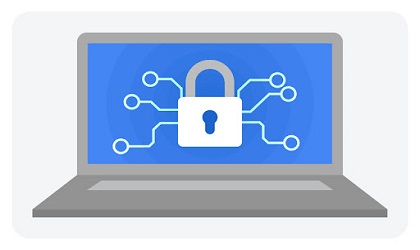In todayâs digital landscape, businesses face an ever-growing number of cyber threats. These threats can lead to data breaches, financial losses, and damage to a companyâs reputation. As cyberattacks become more sophisticated, itâs essential to have a proactive approach to identifying and fixing security vulnerabilities. Vulnerability Assessment and Penetration Testing (VAPT) services provide a comprehensive solution to uncover weaknesses in a company’s digital infrastructure before they can be exploited.
This article explores VAPT services, their importance, how they work, and the benefits they bring to businesses in securing their digital assets.

What Are VAPT Services?
VAPT services refer to the combined practice of Vulnerability Assessment (VA) and Penetration Testing (PT) to evaluate and improve the security posture of an organization. Although both VA and PT are essential to identifying vulnerabilities, they serve different purposes:
- Vulnerability Assessment (VA): This is a systematic process of scanning systems, networks, and applications to identify known vulnerabilities. The assessment focuses on detecting security flaws such as outdated software, misconfigurations, weak passwords, and other issues that could be exploited.
- Penetration Testing (PT): Also known as ethical hacking, penetration testing involves simulating real-world cyberattacks to exploit identified vulnerabilities. It goes beyond identifying security weaknesses to determine how easily these vulnerabilities can be exploited and what the potential impact of a breach would be.
By combining both approaches, VAPT services provide a complete view of an organization’s security weaknesses and the steps necessary to mitigate them.
Why VAPT Services Are Essential
- Proactive Threat Detection: Cybercriminals are constantly seeking new vulnerabilities to exploit. VAPT services allow organizations to identify and fix these vulnerabilities before attackers have a chance to exploit them. This proactive approach helps prevent data breaches and other security incidents.
- Comprehensive Security Analysis: Vulnerability assessments provide a broad view of an organizationâs potential security issues, while penetration testing offers an in-depth analysis of how these weaknesses could be exploited. Together, VAPT Services give businesses a holistic view of their security posture.
- Regulatory Compliance: Many industries are subject to strict data protection and security regulations, such as GDPR, HIPAA, and PCI DSS. Regular VAPT assessments help businesses meet these regulatory requirements by ensuring their systems are secure and compliant.
- Cost-Effective Security: The cost of a cyberattack can be enormous, including financial losses, reputational damage, and legal penalties. VAPT services offer a cost-effective way to address security vulnerabilities before they can result in expensive breaches or incidents.
- Increased Trust and Confidence: Demonstrating a commitment to cybersecurity through regular VAPT assessments can help build trust with customers, partners, and stakeholders. Businesses that prioritize security are more likely to be trusted with sensitive data.
How VAPT Services Work
The VAPT process typically follows several steps:
- Planning and Scoping: The first step in any VAPT engagement is defining the scope of the assessment. This includes identifying the systems, networks, and applications that will be tested and the specific objectives of the test.
- Vulnerability Assessment: Once the scope is defined, the vulnerability assessment begins. Automated scanning tools are used to detect known security weaknesses in the organizationâs infrastructure. This may include software vulnerabilities, misconfiguration, or weak security controls.
- Penetration Testing: After vulnerabilities are identified, ethical hackers simulate cyberattacks to attempt to exploit these weaknesses. The goal of penetration testing is to assess how easily an attacker could breach the system and what kind of damage could be caused.
- Reporting: Once the testing is complete, the VAPT provider delivers a detailed report outlining the vulnerabilities discovered, the results of the penetration tests, and recommended remediation steps.
- Remediation and Retesting: The organization then works to fix the vulnerabilities identified in the report. After the issues are addressed, retesting may be conducted to ensure that the vulnerabilities have been successfully mitigated.
Core VAPT Services
- Network Security Testing: VAPT services often include assessments of an organizationâs network infrastructure, identifying vulnerabilities such as misconfigured firewalls, open ports, or insecure network protocols.
- Web Application Testing: VAPT services also evaluate web applications for vulnerabilities like SQL injection, cross-site scripting (XSS), and other application-level attacks.
- Mobile Application Testing: With the rise of mobile app usage, itâs crucial to test mobile applications for security weaknesses. VAPT services assess mobile apps for issues such as insecure data storage, improper session handling, and weak authentication mechanisms.
- Cloud Security Testing: As businesses increasingly move to the cloud, VAPT services help ensure that cloud environments are secure by identifying configuration issues, access control weaknesses, and other vulnerabilities.
- Internal and External Testing: VAPT services can be conducted from both an internal and external perspective. External testing simulates attacks from outside the organization, while internal testing focuses on threats that could arise from within the company.
The Benefits of VAPT Services
- Identify Critical Security Gaps: VAPT services provide insights into where an organizationâs security defenses are weak and what can be done to strengthen them.
- Prevent Data Breaches: By identifying and addressing vulnerabilities before they can be exploited, VAPT services help prevent costly data breaches and security incidents.
- Ensure Business Continuity: A successful cyberattack can disrupt business operations. VAPT services help ensure that an organizationâs systems and data remain secure, allowing for uninterrupted business operations.
- Improve Incident Response: Penetration testing helps organizations develop better incident response strategies by revealing how well their defenses hold up against real-world attack scenarios.
Conclusion
In the ever-evolving landscape of cybersecurity, Vulnerability Assessment and Penetration Testing (VAPT) services are critical for businesses of all sizes. By identifying and addressing vulnerabilities before they can be exploited, VAPT services help organizations protect their digital assets, ensure regulatory compliance, and maintain customer trust. Regular VAPT assessments should be a key component of any comprehensive cybersecurity strategy to safeguard against the growing number of cyber threats.



